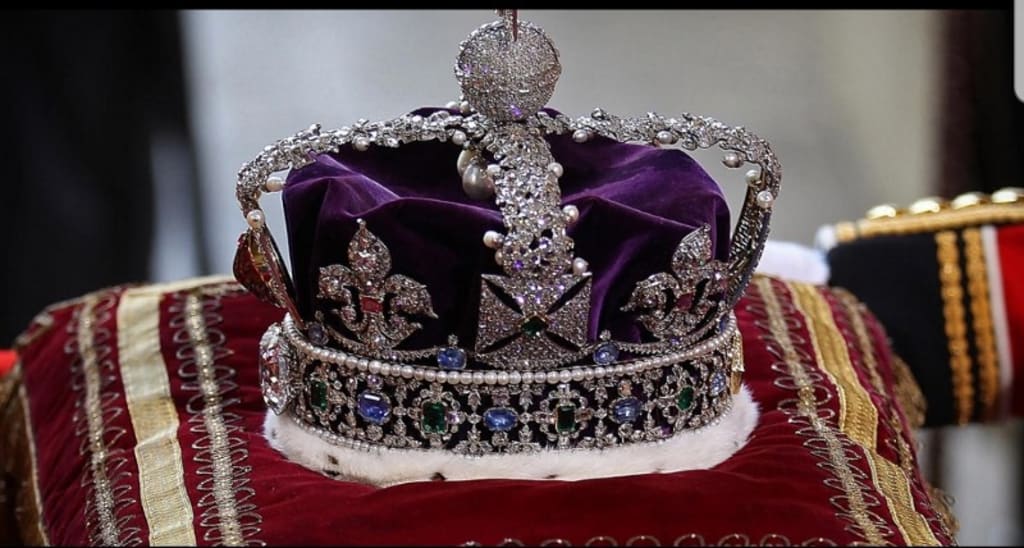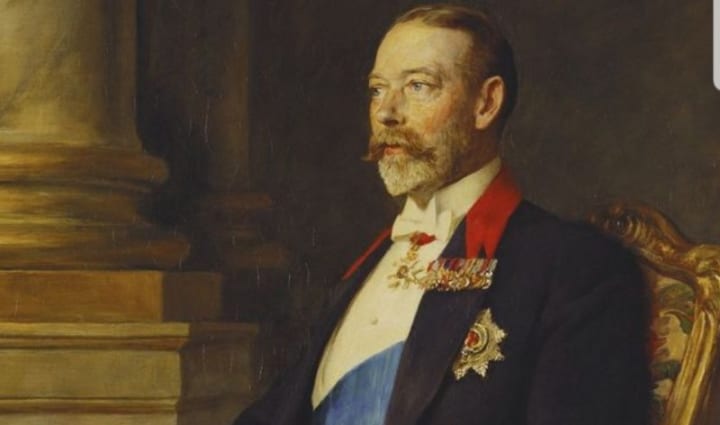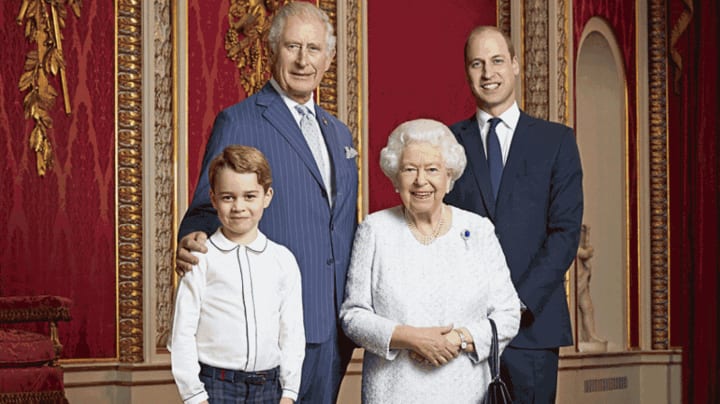The Spare is the Heir
Three Second sons who became King of England

In general, the second sons of British monarchs have a pretty sweet life, enjoying all the royal perks with far less responsibility. The spares aren't destined for the throne so they're free to pursue personal happiness (to a certain extent, anyway). Aside from ribbon cutting, tree planting, and balcony waving, their royal duties are pretty limited.
That is, until their big brothers die or marry an American divorcee. Then shit gets really real, really fast.
This happens more often than you'd think, but here are the three that I find most fascinating.
King Henry VIII

Born on June 28, 1491, England's most famous monarch was never supposed to be king. His older brother, Arthur, was heir to the Tudor throne. Prince Henry's future was in the Church. Or so everyone thought.
When teenage Arthur married the Spanish princess Catherine of Aragon, it sparked a chain of events that would change England forever.
As the daughter of King Ferdinand of Aragon and Queen Isabella of Castile, Catherine was quite a catch. King Henry VII busted his arse to arrange a union between his heir Arthur and Princess Catherine. The marriage would cement an alliance with Spain and put England on the map politically.
The frail Arthur died just five months after his wedding at age 15, temporarily putting the kibosh on all of Henry VII's big plans. But there was no way the king would abandon his plans to woo the Spanish over a little thing like the death of his son. He had too much sweat equity invested to even consider it.
Henry VII proposed that his new heir, the charismatic and handsome Prince Henry, marry his brother's widow. Henry and Catherine actually liked each other and were enthusiastic about the match. The king jerked them both around while he bargained with Catherine's parentals. Terms were finally agreed on and the Papal dispensation to wed was duly granted. Henry married Catherine of Aragon on June 11, 1509.
Over twenty years of marriage and all Queen Catherine produced for living offspring was a crummy girl. Henry needed a son, preferably a castle full of them. Catherine dropped the ball, so Henry kicked her to the curb.
Anne Boleyn may have influenced his decision, but the king was already planning to ditch Catherine, Anne, or no Anne.
The Tudor dynasty died out with Anne Boleyn's girl Elizabeth who became England's greatest Queen. Yeah, up yours, daddy.
George V

Born on June 3, 1865, George V was the second son of Edward, Prince of Wales (later King Edward VII), and his wife, Alexandra of Denmark. He was very close to his older brother Albert, second in line to the throne (known as "Eddy" in the family, and "That "Creepy Looking Weirdo" to everyone else). The two boys were inseparable as youngsters.
The heir Eddy eventually moved on to Trinity College, while George, as the "spare," was off to the Royal Navy. Then Eddy up and died suddenly of influenza in 1892, leaving George next in line to the throne after his father. He left the Navy and was given the title Duke of York, a seat in the House of Lords, and a crash course in British politics.
In 1893, he married his deceased brother's fiancé (deja vu!) Victoria Mary of Teck, a no-nonsense German princess from the impoverished royal House of Teck. May (as she was known to family and friends) had been hand-picked by Queen Victoria to marry the oddly proportioned and none-too-bright Prince Eddy. It wasn't an ideal scenario for May, but she considered it her patriotic duty to wed Eddy Collars and Cuffs, and duty came first.
Much to her family's relief, George took a shine to her (he always referred to her as his "Darling May"). In short order, the couple produced a family of five boys and one girl.
Then came a war. A big one.
World War I may have had the appearance of a family feud to the outside world, but King George V never let the fact that Germany's Kaiser and Russia's Czar were his cousins take precedence over the welfare of his people and the safety of the Crown. His cousin Nicky, the Czar of Russia, was executed by the Bolsheviks because George couldn't and wouldn't risk the ire of his subjects by offering the Romanovs asylum.
George V and Queen Mary invented the House of Windsor by ditching their German surname and adopting the name of England's most iconic castle. They set the duty-bound, family-oriented bar for the Royal Family to live up to, with only sporadic success.
George VI

George VI was the third King to rule the UK during the year 1936. His father, George V, died in January and was succeeded by his eldest son, "David," the Prince of Wales, who became Edward VIII. The new king had always been wildly popular with the people and sincerely returned their affection. But it turned out that the love of his subjects paled in comparison to the love of Wallis Simpson.
This was no mere dalliance, much to the consternation of the Royal Family. David insisted he'd found his soulmate in the twice-married, twice-divorced American Wallis Simpson. Nothing, and no one, could dissuade him from marrying Mrs. Simpson.
King Edward VIII's decision to bounce was the biggest Royal crisis of the 20th century. David's abdication and Bertie's unexpected ascension changed the Royal Family forever, both publically and privately. There was incredible bitterness and hurt on both sides.
Queen Elizabeth, the Queen Mother openly despised David and "That Woman." Her vitriol increased further when her husband, George VI, died far too young at 56. The Queen Mother was convinced that the immense stress of unexpected kingship shortened his life considerably. But, in the interest of full disclosure, we must point out that Bertie smoked like a chimney. Did the stress of getting stuck with the "Top Job" lead to his chain-smoking? Or would it have become a deeply ingrained habit regardless of the Abdication? Does it even matter? Probably not. The ending was already written.
After George VI died, his young daughter, Elizabeth, was crowned in 1953 at 27. Far younger than everyone had hoped. Elizabeth II is the longest-reigning monarch in Great Britain's history, beating her great-great-grandmother Victoria's record.

About the Creator
Kathy Copeland Padden
Political junkie, history buff, and music freak spending the End Times alternating betweencrankiness and bemusement. Come along! It's fun!







Comments (1)
Just quietly, but neither King George V nor King George VI ever became King of England. That title was abolished in 1707. B